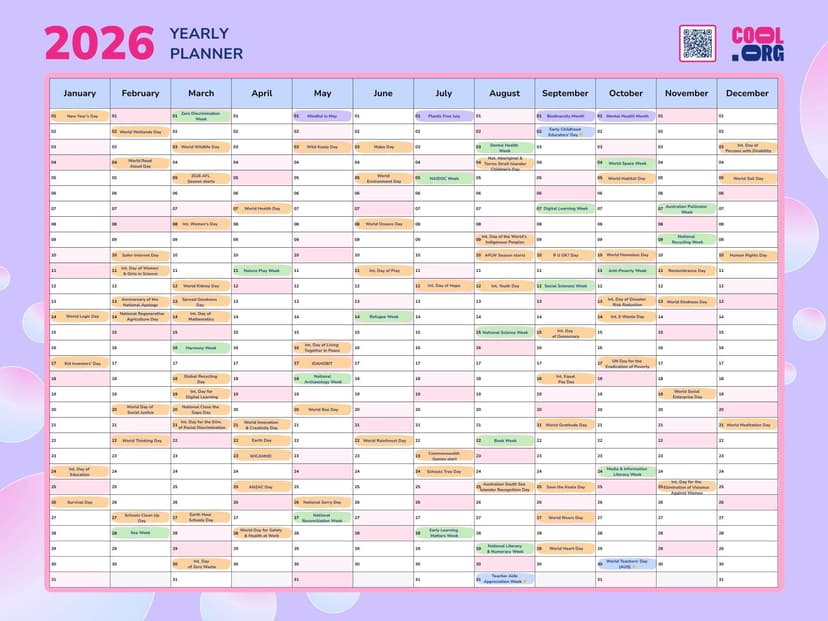School Events and Awareness Days
Welcome to the 2026 schools event calendar!
Awareness events are an awesome way to get kids, parents and educators involved in meaningful learning! We have aligned each awareness event or day with a package of free curriculum-aligned resources aimed at getting your whole school involved. Popular events like Reconciliation Week, National Science Week, Book Week and Harmony Day all feature, and you can use these resources to teach lessons that help kids build empathy and make change in their local community.
Here’s to a great new year of learning, stay cool!

No upcoming events are scheduled
February
There are no events this month